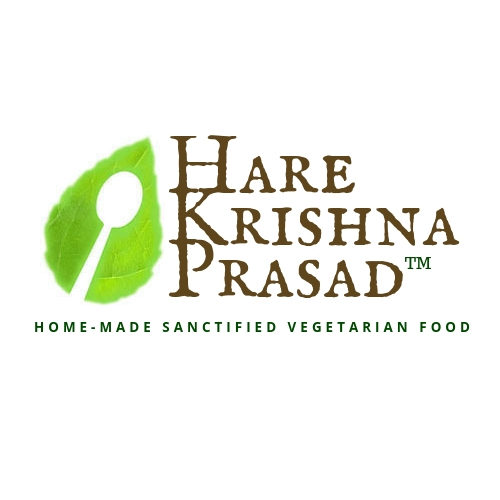Onion and garlic are common spices for cooking food. In fact, many vegetarians regularly consume onion and garlic in their recipes. Sometimes certain dishes are considered to be “incomplete” or “missing something”, if onion and garlic are not there.
Let us now discuss a few relevant questions regarding the use of onion and garlic in food.
Question 1: Isn’t it a fact that onion and garlic have medicinal values?
Answer: Ayurveda indeed recommends onion and garlic as possible medicines for certain ailments. However, medicines are to be consumed under an authentic medical practitioner, in proper dose and for a certain duration, and not as daily food. In fact, in order to avail medicinal values, Ayurveda strictly recommends to consume only raw onion and garlic with empty stomach in the morning. Moreover, Ayurveda considers cooked onion or garlic as poison. From similar consideration, the science of Yoga defines “Saatwik” or “pure” vegetarian food to exclude onion and garlic.
Now let us analyze the structure and properties of onion and garlic from modern scientific point-of-view. Both onion and garlic have sulphoxide, a compound that contains sulfinyl (SO) functional group attached to two carbon atoms. Dr. Robert [Bob] C. Beck, D.Sc., linked the toxicity of onion and garlic to the sulphone hydroxyl ion that
- penetrates the blood-brain barrier,
- desynchronizes brain waves,
- causes attention deficit disorder,
- destroyes concentration and mental acuity.
FODMAP diet excludes any food that has Fermentable Oligo-, Di- and Mono- saccharides, and Polyols (short-chain carb). Both onion and garlic fall in this category. They go through rapid fermentation, which may cause abdominal pain, intestinal gas, bloating, diarrhea and constipation [Ref: J. of Gastro. and Hepatology 25 (2): 252–258 (2010) Gastroenterology 146 (1): 67–75 (2014) Aliment. Pharmacol. Ther. 42 (4): 418–27 (2015)].
It is widely accepted among health care professionals that, as well as killing harmful bacteria, garlic also destroys beneficial bacteria, which are essential to the proper functioning of the digestive system.
Question 2: Won’t lack of onion-garlic compromise the taste?
Answer: Celebrity Master-Chef Sanjeev Kapoor writes in his Official Web-page: “Most cooks think that onions overpower all other flavours as a result of which the individual flavours, especially of vegetables, are lost.”
Question 3: Shouldn’t few recipes compulsorily use onion-garlic?
Answer: Celebrity Master-Chef Sanjeev Kapoor writes in his Official Web-page: “It is possible to cook very well without onions. In fact you can prepare food with less fat because onions do need some amount of oil to brown properly. Cooking without onions and garlic does not require that much preparation and cooking time too is less.
There are many who think that if you cannot use onion or garlic, the end result will be uninteresting, bland and not very palatable. And let me assure you that this is only a myth.”
Question 4: Haven’t onion and garlic traditionally used in preparing food in human society?
Answer: The Taoists realized thousands of years ago that plants of the Allium family (i.e., onion, garlic, shallot, leek, chive and rakkyo) were detrimental to humans in their healthy state. In his writings, one sage Tsang-Tsze described the Alliums as the “five fragrant or spicy scented vegetables” – that each have a detrimental effect on one of the following five organs – liver, spleen, lungs, kidneys, and heart. Specifically, onions are harmful to the lungs, garlic to the heart, leeks to the spleen, chives to the liver and spring onions to the kidneys. Tsang-Tsze said that these pungent vegetables contain five different kinds of enzymes which cause “reactions of repulsive breath, extra-foul odour from perspiration and bowel movements, and lead to lewd indulgences, enhance agitations, anxieties and aggressiveness,” especially when eaten raw.
Similar things are described in Ayurveda. As well as producing offensive breath and body odour, these (allium) plants induce aggravation, agitation, anxiety and aggression. Thus they are harmful physically, emotionally, mentally and spiritually.
Even when garlic is used as food in Chinese culture, it is considered harmful to the stomach, liver and eyes, and a cause of dizziness and scattered energy when consumed in immoderate amounts.
Onion and Garlic was never adopted into traditional Japanese cuisine and was shunned by Zen masters.
Reiki practitioners explain that garlic and onions are among the first substances to be expelled from a person’s system along with tobacco, alcohol and pharmaceutical medications. This makes it apparent that Allium plants have a negative effect on the human body and should be avoided for health reasons.
Buddhists, Vaisnavas and Jains completey avoid onions and garlics in any form.
An old Turkish legend explains that when Satan was thrown out of heaven, garlic sprouted where he first placed his left foot, and onions grew where he placed his right foot.
The Greek citizenry, especially the aristocracy, firmly rejected garlic and found its smell repugnant. Anyone smelling of garlic was considered vulgar and was prevented from enter-ing the temples. However, in Aristophanes’ play “Wives at the Feast of Thesmophores”,the women who were cheating on their husbands found garlic the perfect cover-up for anight of indulgence.
Horace, Roman lyric poet and satirist, said of garlic in his Epodes, that it is “more poisonous than hemlock.”
In Shakespeare’s Midsummer Nights Dream, the character Bottom tells the other actors not to eat garlic or onion, for we are to utter sweet breath. The seventeenth century British view of garlic was solidly negative, with expressions like, “not fit for Ladies’ Palates, nor those who court them,” or that eating garlic “was part of the Punishment for such as had committed the horridst Crimes.” When famous poet Percy Shelley visited Italy with his friend Lord Byron, he was shocked and appalled to see his friend eating the garlic that was served at a social gathering.
